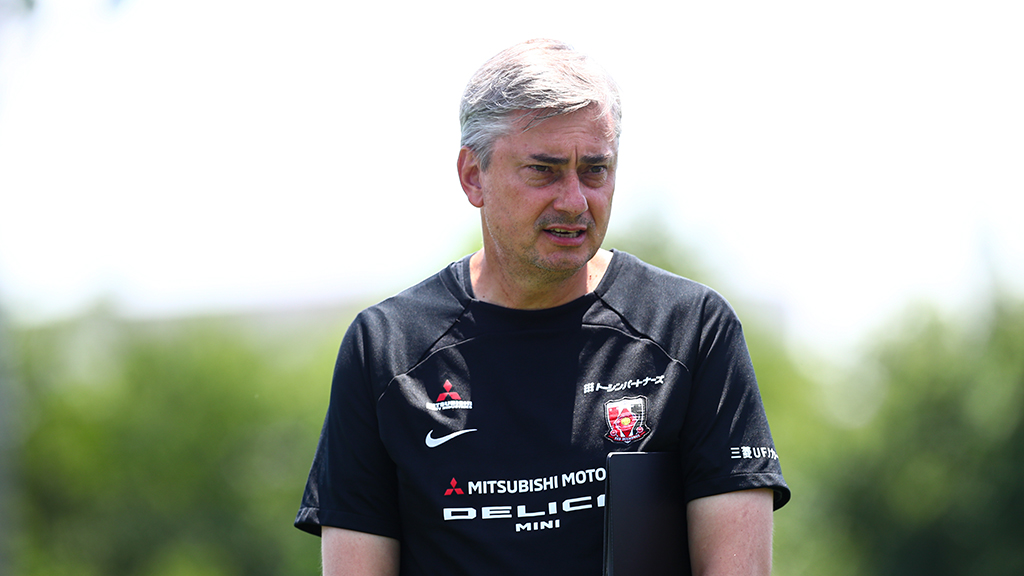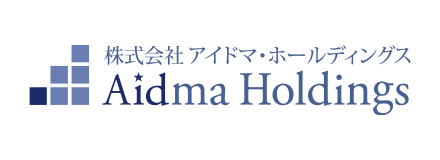NEWS
「私にとってもリベンジ。最も大事なことは勝ち点3」マチェイ スコルジャ監督(定例会見 7/6)
6日、マチェイ スコルジャ監督の記者会見がオンラインで行われ、8日に埼玉スタジアムで行われる明治安田生命J1リーグ 第20節 FC東京戦【MATCH PARTNER 三菱自動車】に向けて意気込みを語った。
(先週の記者会見はラファス ジャナスコーチが登場し、ポーランドではよくあったことだそうだが、マチェイ監督が忙しかったのか、ラファコーチが発信する場をつくりたかったのか、なぜあのタイミングだったのか?)
「その前の会見で私が言っておけばよかったと思います。コーチングスタッフはたくさんの人たちが忙しく働いていて、非常にプロフェッショナルですが、そこで顔を出すのは監督のみです。素晴らしい仕事をしているコーチングスタッフをメディアのみなさん、そしてファン・サポーターの方々に紹介したいということから私はこのような形をとっています。そして以前いたクラブでは、サマーシーズン、ウインターシーズンの最後の会見はスタッフ全員で行いました。たくさんのコーチングスタッフがさまざまな仕事をしています。例えば分析を担当するコーチ、フィジカルコーチやセットプレーを担当するコーチ、攻撃や守備の担当のコーチがいたりします。多くの人がいろいろな仕事をしていますので、それをみなさんにご紹介することでそういうことを行いました。
そこで広報に『このやり方をレッズでもできないか』と相談し、まずは攻撃を担当するラファ(ラファス ジャナス)が会見に出ました。今後も別のコーチが会見に出ることができればと思っています。会見は私にとっても素晴らしい時間ですので、みなさんとお会いしたくない、もしくは忙し過ぎるからできないというわけではありません。前回ラファが出たときもそうです」
(その際にラファコーチが「攻撃的できれいなサッカーをしたい」、「ポジショナルなサッカーは美しい」といったような理想を語ってくれた。マチェイ監督も似たようなところがあると思うが、今のレッズは臨機応変に戦ったり、時に割りきったりしながら勝ち点を稼いでいると思う。そういう理想と現実のバランスや、マチェイ監督の理想に近づくために改善していきたいことはあるか?それとも戦術を使い分けることが理想なのか?)
「その通りです。私も今季のレッズは柔軟に状況に合わせることが必要だと思っています。立ち上がりから終わりまでボールポゼッションが70パーセントくらいでハイプレスをかけながらゲームをコントロールすることが理想です。現時点でそれが実行できるわけではありません。それに向かっていくプロセスの最中です。前節のサガン鳥栖戦も中2日で挑んだ試合でしたので、我々は攻撃的にいきたかったですが、状況的にミドルゾーンやローゾーンで構えてカウンターでゴールを取るという流れになりました。それは我々がカウンター狙いのチームであるということではなく、その試合の状況に合わせたものでした」
(FC東京は監督が替わって2連勝とチーム状態が向上しているが、どんな印象を持っているか?以前とどこが変わったと分析しているか?)
「新しい監督が到着し、FC東京は新しい章に入ったと思います。そして実りのあるスタートを切ったと思います。無失点での2連勝はいい結果だと思います。映像を見ますと、以前よりアグレッシブなチームになっているように思います。アグレッシブなハイプレスをかけようとしています。また、ディエゴ オリヴェイラをうまく生かしていると思います。難しいタスクが待っていると思いますが、私にとってJリーグの最初の試合になったあの試合をまだ覚えています。0-2の敗戦でしたので、私にとってもリベンジの場になります」
(マチェイ監督が就任して半年ほどが経ち、J1リーグの全てのチームと対戦し、いろいろな日本人選手を見たと思うが、Jリーグや日本人にどんな印象を持っているか?)
「Jリーグには全体的に非常にいい印象を持っています。仕事をして、成長して、仕事を楽しむことができる素晴らしい環境にいることができています。そしてレッズのようなビッグクラブで仕事ができていることは非常に幸運だと思っています。Jリーグに対して大きなリスペクトを感じています。レベルも非常に高いですし、組織もしっかりとしていますし、ファン・サポーターやメディアも素晴らしいと思います。
日本人選手に対して、まず教養があると感じます。非常に賢いと思います。そして、そういう選手たちがいれば、仕事のスタイルも変わってきます。いろいろな個性はありますが、全体的に日本人はハードワークができると思います。技術もあると思います。このような選手たちと仕事ができて光栄です。日本サッカー界の将来は明るいと思っています」
(一般的に日本人選手は監督の指示を聞き過ぎると言われるが、もしかするとこの半年間で攻撃を組み立てるときに、例えばシュートの積極性が足りないことにつながったりすることなどを感じたことはあるか?)
「戦術のルールの話をするとき、私は当初から『最終的にはピッチ上で判断しなければいけない』と話をしています。ルールやパターンはチームにありますが、状況に合わせた判断を下さなければいけません。例えば今日の練習の前も鳥栖戦のフィードバックを選手に行いましたが、映像を見せながら一つのビルドアップを紹介しました。鳥栖戦でダイヤゴナルパスをハーフスペースに出し、そこからさらに相手の背後のスペースに出すという練習した通り、我々のパターン通りのプレーを見せましたが、最後のパスの瞬間はいつものパターンではなく別の選択をしていれば、より良いプレーになっていたかもしれないという話をしています」
(夏の移籍の時期が近づいているが、マチェイ監督はクラブに強く推薦するタイプなのか?それともクラブに任せるタイプなのか?)
「まず移籍等に関しては、クラブと監督は一体となって行わなければいけないと思います。クラブの今後については(土田尚史)スポーツダイレクターやコーチングスタッフともよく話をしていますので、私が監督として何かを強くプッシュするということはありません。日々の中でコミュニケーションを取っています。全てはプロセスの中にあると思っていますので、急に今このポジションに選手が必要といった状況が出てくるわけではなく、チームとしてこういうところが必要なのではないかという話はずっとしています。Jリーグではどのチームもそうだと思いますが、レッズも新しい選手を必要としています。そしてクラブにとってベストな解決策を見つけようと一生懸命働いている人たちがたくさんいます」
(マチェイ監督が要求していることについて、日本人選手たちがどう応えているのか?例えば小泉佳穂選手に対して、自分が持っている良さとマチェイ監督の要求に応じて変化しなければいけないところのバランスをどう求めているのか?)
「多くの日本人選手が私の哲学にいい形で合わせてきていると思いますので、彼らの私の要求に対する答えに対しては満足しています。佳穂に関しては、少しスタイルを変えてきてくれているというところもあると思います。彼は今年の最初から好調だったと思います。ACL(AFCチャンピオンズリーグ)決勝まで非常に好調でした。その後、体調不良などで1ヵ月くらい試合から離れていましたが、その後に本来のレベルに戻ることができない時期がありました。しかし彼は非常に重要な選手であり、先発メンバーに戻るのも時間の問題だと思っています」
(暑さの中での連戦になるが、FC東京を相手にどのように賢く戦えばいいと考えているのか?)
「FC東京は守から攻への切り替えが得意なチームですから、そこは気を付けなければいけないと思います。次のホームゲームで前回の鳥栖戦とは違った戦い方を見せたいということははっきりしています。攻撃的にプレーし、できるだけハイプレスもかけて、可能な限り多くのチャンスをつくりながらプレーしたいと思っています。そしてこの会見の前に、5万枚近くチケットが売れているということも聞いていますので、ファン・サポーターにいい試合をお届けしたいと思っています。我々にとって最も大事なことは勝ち点3を取ることです」
(興梠慎三選手があと1試合でJ1リーグ通算500試合を達成するが、どのように感じるか?)
「500試合目ですか。では先発で起用しなければいけませんね(笑)。ここまでの6ヵ月間、慎三がいなければ成功していかなかったと思います。以前、『慎三はレッズの将軍のような存在』だと言いましたが、心からそう思っています。監督としてこういう存在は宝物のようなものです。非常にいいキャラクターでロッカールームでの影響力も大きいです。彼がレッズにとってどれだけ重要な存在であるかということを周りも感じていると思います。そして今、チームのトップスコアラーです。慎三がクラブに復帰したことは我々に取って非常に幸運なことです。ここからさらに500試合出場を目指して頑張ってほしいです(笑)」
(興梠選手のプレー面についてはどう感じているか?)
「彼はゲームの読み、状況の読みが非常にいい選手だと思います。タイミングもいいです。いつ相手の前のスペースに降りて足元で受けるのか、そしていつ裏に抜けるのかということが非常に上手な選手だと思います。そして周りの選手も慎三にボールを出したがります。それがいい攻撃につながるとみんなが分かっているからです。また、トップ下、ウイングとの連係も、周りが彼の動きを分かってきましたので、どんどん良くなってきていると思います」
(FC東京戦で興梠選手自身がJ1リーグ通算500試合出場を祝うゴールを決めることを祈っているので、ぜひピッチに送り込んでほしい)
「わかりました。それでは先発メンバーに入れましょう(笑)」
(鳥栖戦のゴールを見ても、ホセ カンテ選手が調子を上げていると思うが、興梠選手だけではなく彼が本来のプレーができるようになったことは、戦い方に大きな幅を与えてくれるのではないか?)
「ホセはいい方向に向かっていると思います。彼のポテンシャルを見せ始めていると思います。鳥栖戦もよかったと思いますし、大事なゴールも決めました。それはストライカーとしての彼にとってもよかったと思います。チームにクオリティーをもたらすことができることを見せてくれていますので、先発メンバーとして起用できる選手が増えました」
(チームの雰囲気がいいと感じるし、スタッフがつくり出している雰囲気もあると思う。コーチを会見に送り出すことは、監督の考えと違うことを言ってしまうということも起きる可能性があるが、それができるというのはマチェイ監督がスタッフを信頼している証拠なのではないか?)
「ラファもポーランドで何度も記者会見に出ていますし、私はコーチングスタッフの一人ひとり、全員を信頼しています」
(日本だと他のスタッフを出したがらないことも多いが?)
「チームからの声は一人だけ、監督だけである、そして他のメンバーはメディアと話していけないという姿勢を取る監督も理解はできます。我々の文化では、彼らが一生懸命働いていることに対する見返りとして、メディアの方々の質問に答える機会を与えています。それは私の彼らに対するリスペクトの表現の仕方の一つです」
(今後もスタッフの会見を期待しているし、ヴォイテク マコウスキコーチにも話を聞いてみたいと思っている)
「次はマコになります(笑)」
(マチェイ監督とは半年くらいの付き合いだが、監督が発する言葉に逃げがないと感じる。例えば試合後、「主審が…」、「シュートが2センチメートルずれていれば…」、「今日は雨だから…」などと言い訳をしてしまう監督も多いが、マチェイ監督はそういった言葉がほとんどない。羽生直行通訳の腕もあると思うが、あえてそうした姿勢をしているのか?)
「最初に、羽生という素晴らしい通訳が私の言葉を訳してくれています。だから彼が私の言葉をスムーズにしているのかもしれません。私は自分にどういったミスがあったのか、間違ったことをしていないのかということを最初に考えます。私も人間ですから、レフェリーに対して怒りを感じるもありますし、不運だったと思うこともあります。もしかしたらナーバスになるようなゲームの後で、みなさんが期待しているような答えをしないこともあるかもしれません。私の最も悪い側面は、記者会見の後に出てきているのかもしれません(笑)。今季最もナーバスになった試合は、ACL決勝から中3日のサガン鳥栖戦でした。0-2で敗れた試合です。私がナーバスになった理由は、自分自身のミスや不運な出来事ではなく、スケジュールに対してでした。だから私も完璧ではありません(笑)」
(古くはアーセン ベンゲル監督、近年はアンジェ ポステコグルー監督や日本で活躍した監督がヨーロッパにステップアップしている。私はあまり負けない監督を知っている。それはあなたが一番よく知っている監督だと思うが、この成績が続くとその監督にもオファーが届くと思う。Jリーグの監督のレベルを測ることは難しいが、タイで成功している石井正忠監督や鬼木 達監督のような素晴らしい監督がいると思う。その可能性をどのように考えているのか?もし魅力的なオファーが日本で指揮を執る監督に届いたときにどういう行動を取るべきだと思っているか?)
「非常に難しい質問です。その監督がどういう目標を持っているかによって答えは違ってくると思います。監督としての成長を望んでいるならば、オファーを受けたときにしっかりと考えた方がいいと思います。Jリーグが一つの強いリーグだと思っています。ヨーロッパのトップ6、もしくはトップ8のリーグからのオファーであれば考えられると思います。成長を考えたときにはJリーグよりレベルが高いリーグに行くべきだと思いますが、オファーの金額が良くて収入のために行くのであれば、他のリーグでも構わないと思います。私は6ヵ月、日本で仕事をしていますが、日本人指導者のレベルは非常に高いと思っています。ですので、ヨーロッパのトップリーグと言われるようなところに日本人の指導者がいないことに逆に驚いています」
【浦和レッズオフィシャルメディア(URD:OM)】
(先週の記者会見はラファス ジャナスコーチが登場し、ポーランドではよくあったことだそうだが、マチェイ監督が忙しかったのか、ラファコーチが発信する場をつくりたかったのか、なぜあのタイミングだったのか?)
「その前の会見で私が言っておけばよかったと思います。コーチングスタッフはたくさんの人たちが忙しく働いていて、非常にプロフェッショナルですが、そこで顔を出すのは監督のみです。素晴らしい仕事をしているコーチングスタッフをメディアのみなさん、そしてファン・サポーターの方々に紹介したいということから私はこのような形をとっています。そして以前いたクラブでは、サマーシーズン、ウインターシーズンの最後の会見はスタッフ全員で行いました。たくさんのコーチングスタッフがさまざまな仕事をしています。例えば分析を担当するコーチ、フィジカルコーチやセットプレーを担当するコーチ、攻撃や守備の担当のコーチがいたりします。多くの人がいろいろな仕事をしていますので、それをみなさんにご紹介することでそういうことを行いました。
そこで広報に『このやり方をレッズでもできないか』と相談し、まずは攻撃を担当するラファ(ラファス ジャナス)が会見に出ました。今後も別のコーチが会見に出ることができればと思っています。会見は私にとっても素晴らしい時間ですので、みなさんとお会いしたくない、もしくは忙し過ぎるからできないというわけではありません。前回ラファが出たときもそうです」
(その際にラファコーチが「攻撃的できれいなサッカーをしたい」、「ポジショナルなサッカーは美しい」といったような理想を語ってくれた。マチェイ監督も似たようなところがあると思うが、今のレッズは臨機応変に戦ったり、時に割りきったりしながら勝ち点を稼いでいると思う。そういう理想と現実のバランスや、マチェイ監督の理想に近づくために改善していきたいことはあるか?それとも戦術を使い分けることが理想なのか?)
「その通りです。私も今季のレッズは柔軟に状況に合わせることが必要だと思っています。立ち上がりから終わりまでボールポゼッションが70パーセントくらいでハイプレスをかけながらゲームをコントロールすることが理想です。現時点でそれが実行できるわけではありません。それに向かっていくプロセスの最中です。前節のサガン鳥栖戦も中2日で挑んだ試合でしたので、我々は攻撃的にいきたかったですが、状況的にミドルゾーンやローゾーンで構えてカウンターでゴールを取るという流れになりました。それは我々がカウンター狙いのチームであるということではなく、その試合の状況に合わせたものでした」
(FC東京は監督が替わって2連勝とチーム状態が向上しているが、どんな印象を持っているか?以前とどこが変わったと分析しているか?)
「新しい監督が到着し、FC東京は新しい章に入ったと思います。そして実りのあるスタートを切ったと思います。無失点での2連勝はいい結果だと思います。映像を見ますと、以前よりアグレッシブなチームになっているように思います。アグレッシブなハイプレスをかけようとしています。また、ディエゴ オリヴェイラをうまく生かしていると思います。難しいタスクが待っていると思いますが、私にとってJリーグの最初の試合になったあの試合をまだ覚えています。0-2の敗戦でしたので、私にとってもリベンジの場になります」
(マチェイ監督が就任して半年ほどが経ち、J1リーグの全てのチームと対戦し、いろいろな日本人選手を見たと思うが、Jリーグや日本人にどんな印象を持っているか?)
「Jリーグには全体的に非常にいい印象を持っています。仕事をして、成長して、仕事を楽しむことができる素晴らしい環境にいることができています。そしてレッズのようなビッグクラブで仕事ができていることは非常に幸運だと思っています。Jリーグに対して大きなリスペクトを感じています。レベルも非常に高いですし、組織もしっかりとしていますし、ファン・サポーターやメディアも素晴らしいと思います。
日本人選手に対して、まず教養があると感じます。非常に賢いと思います。そして、そういう選手たちがいれば、仕事のスタイルも変わってきます。いろいろな個性はありますが、全体的に日本人はハードワークができると思います。技術もあると思います。このような選手たちと仕事ができて光栄です。日本サッカー界の将来は明るいと思っています」
(一般的に日本人選手は監督の指示を聞き過ぎると言われるが、もしかするとこの半年間で攻撃を組み立てるときに、例えばシュートの積極性が足りないことにつながったりすることなどを感じたことはあるか?)
「戦術のルールの話をするとき、私は当初から『最終的にはピッチ上で判断しなければいけない』と話をしています。ルールやパターンはチームにありますが、状況に合わせた判断を下さなければいけません。例えば今日の練習の前も鳥栖戦のフィードバックを選手に行いましたが、映像を見せながら一つのビルドアップを紹介しました。鳥栖戦でダイヤゴナルパスをハーフスペースに出し、そこからさらに相手の背後のスペースに出すという練習した通り、我々のパターン通りのプレーを見せましたが、最後のパスの瞬間はいつものパターンではなく別の選択をしていれば、より良いプレーになっていたかもしれないという話をしています」
(夏の移籍の時期が近づいているが、マチェイ監督はクラブに強く推薦するタイプなのか?それともクラブに任せるタイプなのか?)
「まず移籍等に関しては、クラブと監督は一体となって行わなければいけないと思います。クラブの今後については(土田尚史)スポーツダイレクターやコーチングスタッフともよく話をしていますので、私が監督として何かを強くプッシュするということはありません。日々の中でコミュニケーションを取っています。全てはプロセスの中にあると思っていますので、急に今このポジションに選手が必要といった状況が出てくるわけではなく、チームとしてこういうところが必要なのではないかという話はずっとしています。Jリーグではどのチームもそうだと思いますが、レッズも新しい選手を必要としています。そしてクラブにとってベストな解決策を見つけようと一生懸命働いている人たちがたくさんいます」
(マチェイ監督が要求していることについて、日本人選手たちがどう応えているのか?例えば小泉佳穂選手に対して、自分が持っている良さとマチェイ監督の要求に応じて変化しなければいけないところのバランスをどう求めているのか?)
「多くの日本人選手が私の哲学にいい形で合わせてきていると思いますので、彼らの私の要求に対する答えに対しては満足しています。佳穂に関しては、少しスタイルを変えてきてくれているというところもあると思います。彼は今年の最初から好調だったと思います。ACL(AFCチャンピオンズリーグ)決勝まで非常に好調でした。その後、体調不良などで1ヵ月くらい試合から離れていましたが、その後に本来のレベルに戻ることができない時期がありました。しかし彼は非常に重要な選手であり、先発メンバーに戻るのも時間の問題だと思っています」
(暑さの中での連戦になるが、FC東京を相手にどのように賢く戦えばいいと考えているのか?)
「FC東京は守から攻への切り替えが得意なチームですから、そこは気を付けなければいけないと思います。次のホームゲームで前回の鳥栖戦とは違った戦い方を見せたいということははっきりしています。攻撃的にプレーし、できるだけハイプレスもかけて、可能な限り多くのチャンスをつくりながらプレーしたいと思っています。そしてこの会見の前に、5万枚近くチケットが売れているということも聞いていますので、ファン・サポーターにいい試合をお届けしたいと思っています。我々にとって最も大事なことは勝ち点3を取ることです」
(興梠慎三選手があと1試合でJ1リーグ通算500試合を達成するが、どのように感じるか?)
「500試合目ですか。では先発で起用しなければいけませんね(笑)。ここまでの6ヵ月間、慎三がいなければ成功していかなかったと思います。以前、『慎三はレッズの将軍のような存在』だと言いましたが、心からそう思っています。監督としてこういう存在は宝物のようなものです。非常にいいキャラクターでロッカールームでの影響力も大きいです。彼がレッズにとってどれだけ重要な存在であるかということを周りも感じていると思います。そして今、チームのトップスコアラーです。慎三がクラブに復帰したことは我々に取って非常に幸運なことです。ここからさらに500試合出場を目指して頑張ってほしいです(笑)」
(興梠選手のプレー面についてはどう感じているか?)
「彼はゲームの読み、状況の読みが非常にいい選手だと思います。タイミングもいいです。いつ相手の前のスペースに降りて足元で受けるのか、そしていつ裏に抜けるのかということが非常に上手な選手だと思います。そして周りの選手も慎三にボールを出したがります。それがいい攻撃につながるとみんなが分かっているからです。また、トップ下、ウイングとの連係も、周りが彼の動きを分かってきましたので、どんどん良くなってきていると思います」
(FC東京戦で興梠選手自身がJ1リーグ通算500試合出場を祝うゴールを決めることを祈っているので、ぜひピッチに送り込んでほしい)
「わかりました。それでは先発メンバーに入れましょう(笑)」
(鳥栖戦のゴールを見ても、ホセ カンテ選手が調子を上げていると思うが、興梠選手だけではなく彼が本来のプレーができるようになったことは、戦い方に大きな幅を与えてくれるのではないか?)
「ホセはいい方向に向かっていると思います。彼のポテンシャルを見せ始めていると思います。鳥栖戦もよかったと思いますし、大事なゴールも決めました。それはストライカーとしての彼にとってもよかったと思います。チームにクオリティーをもたらすことができることを見せてくれていますので、先発メンバーとして起用できる選手が増えました」
(チームの雰囲気がいいと感じるし、スタッフがつくり出している雰囲気もあると思う。コーチを会見に送り出すことは、監督の考えと違うことを言ってしまうということも起きる可能性があるが、それができるというのはマチェイ監督がスタッフを信頼している証拠なのではないか?)
「ラファもポーランドで何度も記者会見に出ていますし、私はコーチングスタッフの一人ひとり、全員を信頼しています」
(日本だと他のスタッフを出したがらないことも多いが?)
「チームからの声は一人だけ、監督だけである、そして他のメンバーはメディアと話していけないという姿勢を取る監督も理解はできます。我々の文化では、彼らが一生懸命働いていることに対する見返りとして、メディアの方々の質問に答える機会を与えています。それは私の彼らに対するリスペクトの表現の仕方の一つです」
(今後もスタッフの会見を期待しているし、ヴォイテク マコウスキコーチにも話を聞いてみたいと思っている)
「次はマコになります(笑)」
(マチェイ監督とは半年くらいの付き合いだが、監督が発する言葉に逃げがないと感じる。例えば試合後、「主審が…」、「シュートが2センチメートルずれていれば…」、「今日は雨だから…」などと言い訳をしてしまう監督も多いが、マチェイ監督はそういった言葉がほとんどない。羽生直行通訳の腕もあると思うが、あえてそうした姿勢をしているのか?)
「最初に、羽生という素晴らしい通訳が私の言葉を訳してくれています。だから彼が私の言葉をスムーズにしているのかもしれません。私は自分にどういったミスがあったのか、間違ったことをしていないのかということを最初に考えます。私も人間ですから、レフェリーに対して怒りを感じるもありますし、不運だったと思うこともあります。もしかしたらナーバスになるようなゲームの後で、みなさんが期待しているような答えをしないこともあるかもしれません。私の最も悪い側面は、記者会見の後に出てきているのかもしれません(笑)。今季最もナーバスになった試合は、ACL決勝から中3日のサガン鳥栖戦でした。0-2で敗れた試合です。私がナーバスになった理由は、自分自身のミスや不運な出来事ではなく、スケジュールに対してでした。だから私も完璧ではありません(笑)」
(古くはアーセン ベンゲル監督、近年はアンジェ ポステコグルー監督や日本で活躍した監督がヨーロッパにステップアップしている。私はあまり負けない監督を知っている。それはあなたが一番よく知っている監督だと思うが、この成績が続くとその監督にもオファーが届くと思う。Jリーグの監督のレベルを測ることは難しいが、タイで成功している石井正忠監督や鬼木 達監督のような素晴らしい監督がいると思う。その可能性をどのように考えているのか?もし魅力的なオファーが日本で指揮を執る監督に届いたときにどういう行動を取るべきだと思っているか?)
「非常に難しい質問です。その監督がどういう目標を持っているかによって答えは違ってくると思います。監督としての成長を望んでいるならば、オファーを受けたときにしっかりと考えた方がいいと思います。Jリーグが一つの強いリーグだと思っています。ヨーロッパのトップ6、もしくはトップ8のリーグからのオファーであれば考えられると思います。成長を考えたときにはJリーグよりレベルが高いリーグに行くべきだと思いますが、オファーの金額が良くて収入のために行くのであれば、他のリーグでも構わないと思います。私は6ヵ月、日本で仕事をしていますが、日本人指導者のレベルは非常に高いと思っています。ですので、ヨーロッパのトップリーグと言われるようなところに日本人の指導者がいないことに逆に驚いています」
【浦和レッズオフィシャルメディア(URD:OM)】























